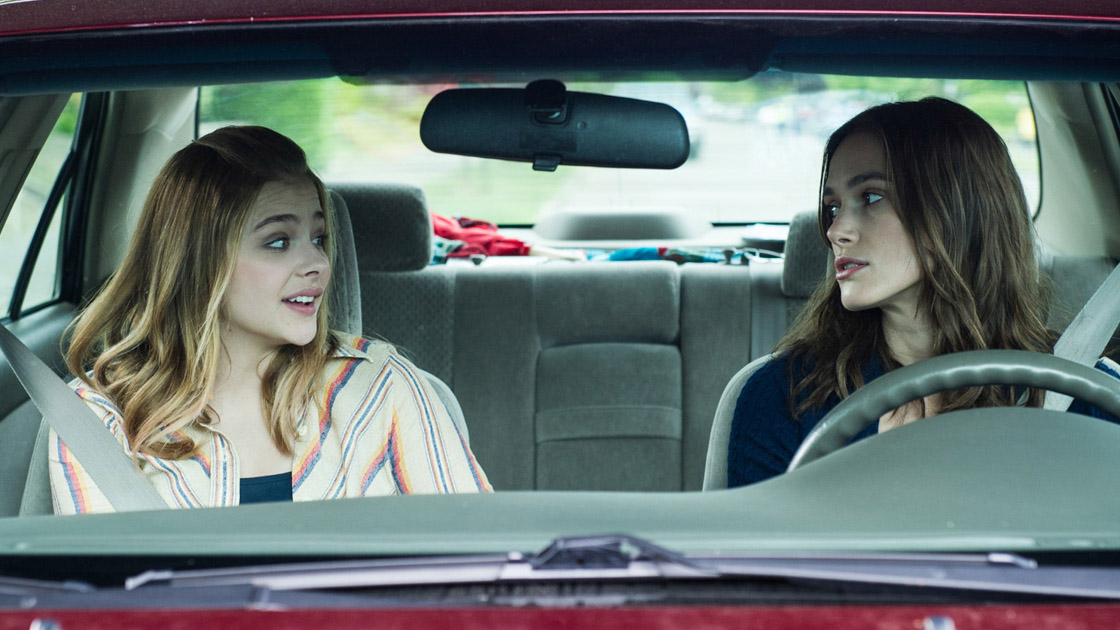 Back to selection
Back to selection
Interview with Laggies Director Lynn Shelton
 Laggies
Laggies Filmmaker: Why this movie? Why did you decide to do it?
Shelton: Laggies is the first film I’ve directed that I didn’t also write; the script just really spoke to me. The way that the story unfolds is unexpected but believable, and all the humor comes from a character-based place. Andrea Seigel is a fantastic writer. She’s so facile with creating dialog that feels smart but also breezy.
Filmmaker: How much of your crew was female? Was hiring women a consideration for you?
Shelton: My considerations when hiring crew are: a) competence, and b) relationship (i.e. “is this going to be a good fit, personality-wise?”) That being said, it’s definitely pleasing to see some gender diversity on a crew. Nearly everyone above the line on set was female, which was enormously satisfying, and a good deal of the below the line crew were also gals, including my incredible 1st AD, Lynn Wegenka. It’s refreshing to not be the only estrogen-producing entity on the set.
Filmmaker: How did you go about raising funding for it? (I ask this because most female filmmakers says that being female makes it harder to raise funds, so thought your story could be inspiring — I know this topic can be touchy feely, so answer it in the way that you are most comfortable with.
Shelton: Well, raising the money for Laggies was all in the hands of the producers and I was really kept out of it. I can say that it was the most expensive film I’ve directed to date — my first multi-million budget — so it was heartening to have been allowed and able to take that next step on a budgetary level, after having made five previous films for well under $1M.
Filmmaker: Do you think a male director might have handled the making of this film differently? How did being a female filmmaker effect how this film got made do you think?
Shelton: This is such a difficult question to answer, because it’s really an individual thing in my opinion. I know some incredibly sensitive male directors who can direct male- and female-driven material equally well. That being said, it was absolutely fascinating to watch Yvan Attal’s remake of my film Humpday (Do Not Disturb, unreleased in the US). The film was very faithful in a lot of ways to the original, but it also felt very different in other ways, one of which was that it had a distinctly “male” quality to it in my opinion. I hadn’t been expecting that. It was such a fun experiment to be able to see, side by side, how a female and a male director handled the same material. And, in this case, I think there was a gender-based point-of-view difference.
Filmmaker: Who do you hope IS your audience? Men or women? Did you consider this as you created the film (i.e. – did you add any male humor to make it accessible to men, female humor for women, etc)
Shelton: I set out to tell the story in the most resonant way possible. For me that means giving each character their due and allowing every person on screen to feel real with both strengths and deficits, as real humans all have. I don’t tend to think of humor as gender-based; funny is funny, so I hope the film appeals to both men and women.
Filmmaker: You got your start after 40: why do you think your career trajectory followed this timeline?
Shelton: I always wanted to direct feature films. When I was applying to grad school in my early twenties, I remember trying to decide between acting and filmmaking. Acting was my comfort zone as I’d been doing it since I was 11 but I’d had no exposure to filmmaking up to that point. And I didn’t have the confidence to dive into the unknown at that point; it was just too intimidating to me. I’m heartened to see programs popping up now like Seattle’s fantastic Reel Grrls organization that allow girls access to the empowerment of making movies at younger ages. I probably would have started making movies much earlier had I had access to a program like that when I was a kid.
Filmmaker: What’s next?
Shelton: I’ve got a couple of things in development but they are each at that touchy jinxable stage so I don’t want to say anything about them.
Filmmaker: Considering this will be released at Sundance: A) What do you hope to gain from being at the festival? and B) Who would be your dream person to meet while there?
Shelton: A) I hope that the audience loves the film and that we find a distributor who loves it as well and wants to help us share it with the world.
B) In all honesty: the Big Guy. I’ve been to Sundance several times now and I’ve never had the honor of shaking Robert Redford’s hand and thanking him in person for giving me my career. I would like to be able to do that some day.
